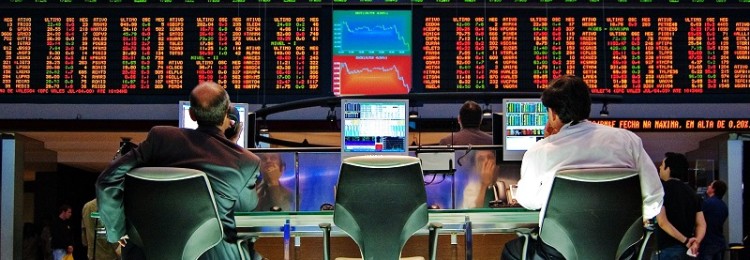For a large number of traders who are not familiar with the intricacies of trading, the question of whether the broker brings transactions to the interbank market or not is secondary. They are convinced that all brokers act identically, and bring transactions to the interbank only as a joint position of a large number of traders. In this case, the transaction volume must be at least 1 million USD. That is why merchants are ready to put up with a lot of inconvenience. They prioritize high-quality execution and timely withdrawals. Meanwhile, you will have nothing to take out if the “kitchen” takes you into circulation. With the help of “hairpins” that knock down stops, terminal freezes, incorrect quotes, requotes, slippage, mandatory verification requirements, strict conditions for working out bonuses and other technical capabilities, your deposit will be drained.
How to determine that a broker is bringing transactions to the interbank market?
There are several ways to confirm the fact of withdrawing money to the international market:
- The presence of a serious regulator. In this case, the broker must bring transactions to the interbank market, because this is what is written in the documents. But if the regulator is far away (for example, in Mauritius), and cannot monitor the fulfillment of obligations, then this clause will not establish the truth.
- Send a request for information on which liquidity provider the transaction was carried out with. But the broker can refuse due to the confidentiality of data, or provide a document, even if the transaction was not carried out with the specified liquidity provider.
- Choose an ECN broker. It must supply clients with spreads and quotes in the form in which they were received. The best buy and sell prices are provided, and they can be from different liquidity providers.
- The absence of requotes and slippage is a good practice for honest brokers who instantly execute orders.
- Money is withdrawn in a timely manner. “Kitchens” delay the withdrawal of finances above certain amounts (for example, 3 thousand dollars). The reason is that they earn only if the majority of their clients go into the red. If users win, then the company has no money left for payments, and it can delay the process or block it altogether, citing a violation of the regulations. And almost any action can be brought under this article, because the conditions are formulated unclearly and to the benefit of the broker.
- Additional favorable conditions are created for traders. For example, the technology of routing requests, which allows customers to receive quotes even faster, plus – 10-30 pt more profitable compared to competitors. This also confirms that the broker brings transactions to the interbank market.
Is it convenient to work with “kitchens”?
If orders are placed inside a dealing desk, then this is also not bad. After all, you can start trading with small amounts, and the services will not work in slow mode, causing requotes and slippage. Transactions with a volume of 10 lots and more can be withdrawn to the interbank.
On the other hand, there are risks of working with “kitchens”:
- Lack of normal trading due to the use by the dealing center of its technical advantages, in order to turn the result of the transaction in its favor. Then even potentially profitable trading will turn into a losing one.
- Restrictions of various kinds. This is a high threshold of the minimum volume, which does not allow you to effectively manage money; a large stop out exceeding 20%; Huge stop loss – you cannot place orders closer than a set number of points in relation to the current price, which eliminates the possibility of scalping. There is also a freeze level – a ban on closing a deal if it has passed a certain level.
- Unscrupulous managers and bad analysts behave in the same way. At first, they try to gain the trust of the trader, really helping him, and later they play on the side of the dealing center, draining the trader’s capital.
- Commission for depositing and withdrawing funds. The dealer does not have enough earnings on spreads, and he offers such conditions that the deposit cannot be made in the currency of the trading account. Then the user pays a currency conversion fee. Often no one talks about such nuances. Truth is revealed only in a practical way.
- Payment of finances with a delay or refusal to withdraw money – we considered this point above.
- The client’s account may be blocked for reasons of internal regulations. No one will return your money. You can achieve justice only if you initiate the chargeback procedure. But this is only possible if you funded your account by bank transfer.
How to identify a “kitchen”, a dealing center?

The main signs of an unscrupulous broker are the following:
- Large leverage. The norm at the upper limit is 1:50. Instead, dealers offer leverage of up to 1:1000 and even higher. Why is this done? To increase the risks. When the price moves against the trader’s open positions, the deposit will be quickly drained, and the market participant will be knocked out by stop out.
- Minimum threshold for entering a trade. If you are offered to start the game with $1, this is a clear sign of “kitchen”. Such ridiculous amounts are not enough to deal with liquidity providers.
- There is no information about the providers providing quotes.
- The company is too young, plus there are discrepancies between the specified time of the company’s existence and the registration of its website.
- Representations in cities. There are either no or too many of them. This indicates the desire to attract customers only through the Internet or in all possible ways. The goal is to get money from users.
- There are licenses, but they are from dubious organizations like CRFIN, NAFD, KROUFR. In Russia, only AFD has accreditation. A license from the Central Bank is issued. In the world, you can trust the FCA, NFA, CySec.
- Aggressive advertising campaign. The company urgently needs “young money” from new customers.
- “Kitchens” guarantee the trader to earn money, but this is just a marketing ploy.
- Often a dealing center masquerades as a respectable broker. Then you can feel the nuances of cooperation only on yourself.
Also, check the availability of a contract – without it, it will not be possible to force the dealer to fulfill his obligations. When withdrawing funds, you may be refused due to the lack of verification. There will be hidden commissions, large bonuses will be offered with strict conditions for working them out. When executing orders, slippage of quotes, freezing, and delays are possible. If trading is profitable, then trading conditions change dramatically. If you find all these points at the broker, it means that you have a “kitchen” that you need to run away from!

